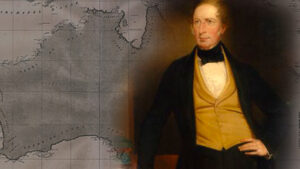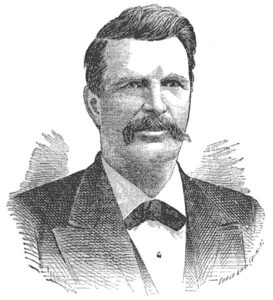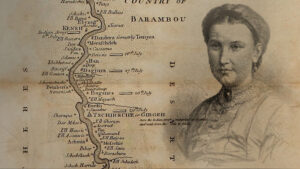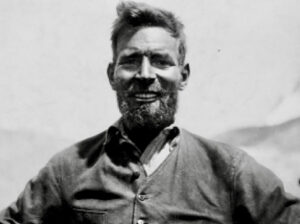“The airplane has unveiled for us the true face of the earth.” — Antoine de Saint Exupery
It was the 1920s. A lost young man decided to join the French military. Antoine de Saint Exupery did not anticipate becoming a pilot or one of the world’s most famous authors. Both complicated and adventurous, Saint-Exupery became an airmail pioneer and paved the way for ambitious pilots in a time when the field was in its dangerous infancy.
Background
He was born into an aristocratic family in Lyon, but misfortune befell them after his father died. His father’s death deeply affected the young Saint Exupery, though he often affected a stoic exterior while caring for his siblings. However, his younger brother died as well, adding another tragedy to his life.
Circumstances caused the upper-class family to lose its wealth and status. For years, an aimless Saint Exupery had no plan or purpose.
He longed to do something different, but he did not yet know what that was. Science or academics did not entice. He failed a couple of exams and so couldn’t join the Navy. Instead, he dropped out of a prestigious architectural school and worked mundane, odd jobs here and there, searching for fulfillment of some kind.
Becoming a pilot
In 1921, he decided to join the French army. There, he took an interest in flying. This seemed to stick with him and he became a pilot not long after. The nascent air force posted him to North Africa, where he spent many years flying to and gaining inspiration for the next steps in his career.
While Saint Exupery loved flying, he was not a flawless pilot. He had seen his fair share of crashes and brushes with death in his compatriots. Unable to deal with another tragedy, he needed to take a hiatus from his adventurous life.
Yet before too long, he found a new purpose: airmail. Airmail was in its infancy in the 1920s. Saint-Exupery took up a position with Aéropostale and flew from France to parts of the Sahara. He also volunteered for rescue missions of soldiers trapped in the deserts.
One would think that he would have been satisfied and fulfilled in this job. But no one saw what was coming next. Unexpectedly, Saint Exupery showed a writing genius. As a student, he did not enjoy humanities nor did he give an inkling of his literary talents. But somehow, aviation inspired him to write novels and memoirs, using characters and experiences as allegories for greater themes in life.
Combining writing and aviation
French journalist and biographer Joseph Kessel stated, “I have met a number of individuals who were both poets and men of action. But in every case, one of these two capacities had developed at the expense of the other. Only the author of Vol de Nuit [“Night Flight”], who also carries airmail over the deserts, the jungles, and the pampas, is at the same time a first-rate pilot and a writer of foremost rank.”
What made Saint Exupery so good was his ability to balance both identities. His first books were L’Aviateur, Courrier Sud, and Vol de Nuit. All had similar themes: pioneering pilots, crashes in the desert, and voyages of self-discovery. The autobiographical motif of his works made him stand out and he rose to fame in the late 1920s and 30s.

‘The Little Prince’ translated into Spanish. Photo: Emilita/Shutterstock
One famous incident granted him immense inspiration for Wind, Sand, and Stars as well as The Little Prince, his magnum opus. The Little Prince includes a pilot narrator who crashed in the Sahara. He meets a little boy who comes from a distant planet and learns great wisdom from him.
In 1935, he and his navigator survived a terrible crash in the Libyan desert. They almost died from exhaustion, dehydration, and malnutrition. They also had injuries that never healed. They were saved, almost deus-ex-machina fashion, by a Bedouin who appeared out of nowhere. The close call scarred him for life and prompted him to explore the depths of the human psyche. He detailed this harrowing experience unforgettably in Wind, Sand, and Stars.
The decline
The years of the Second World War were extremely hard on him. He went back into service as a reconnaissance pilot. However, rumors circulated that he was a Nazi sympathizer. The stress from the situation caused him to spiral into depression. After flying out for a mission in July 1944, he disappeared and was never seen again.
Evidence of his death did not turn up until 1998 and 2000 when personal effects and pieces of his plane were found in the ocean off Marseille. German forces likely shot him down.
Legacy
The Little Prince is one of the most celebrated and translated books of all time. From graphic novels and anime to stage plays, the message of the novella never fails to transcend time. Saint Exupery’s legacy can be traced from France all the way to Brazil, where numerous schools, foundations, and museums bear his name. June 29 marks Little Prince Day, which is dedicated to him. Many Facebook groups and fan pages post daily about him and share archival photos.
This February has been a big month for him and his estate. On Feb. 1, 2024, author Jean-Pierre Goux, along with help from Antoine’s great-nephew Olivier d’Agay, released a sequel to The Little Prince called The Little Princess, fulfilling a promise of a continuation Saint-Exupery made to his wife. Saint Exupery’s Courrier Sud and Le Petit Prince even inspired a new fragrance. The marketing campaign retraced his steps in the Sahara.

Antoine St-Exupery with his plane. Photo: Agence France-Presse
Reddit threads are not so much occupied with his disappearance but rather love to discuss The Little Prince. Some cite its messages as life-changing, inspiring, even sometimes depressing. After 80 years, Saint Exupery is still being talked about.
Conclusion
One could say that Saint Exupery was great at what he did but always remained somewhat of a lost soul. Ironically, his love of flying was the only thing keeping him grounded. It helped him find purpose and an untapped talent to change the world around him.






